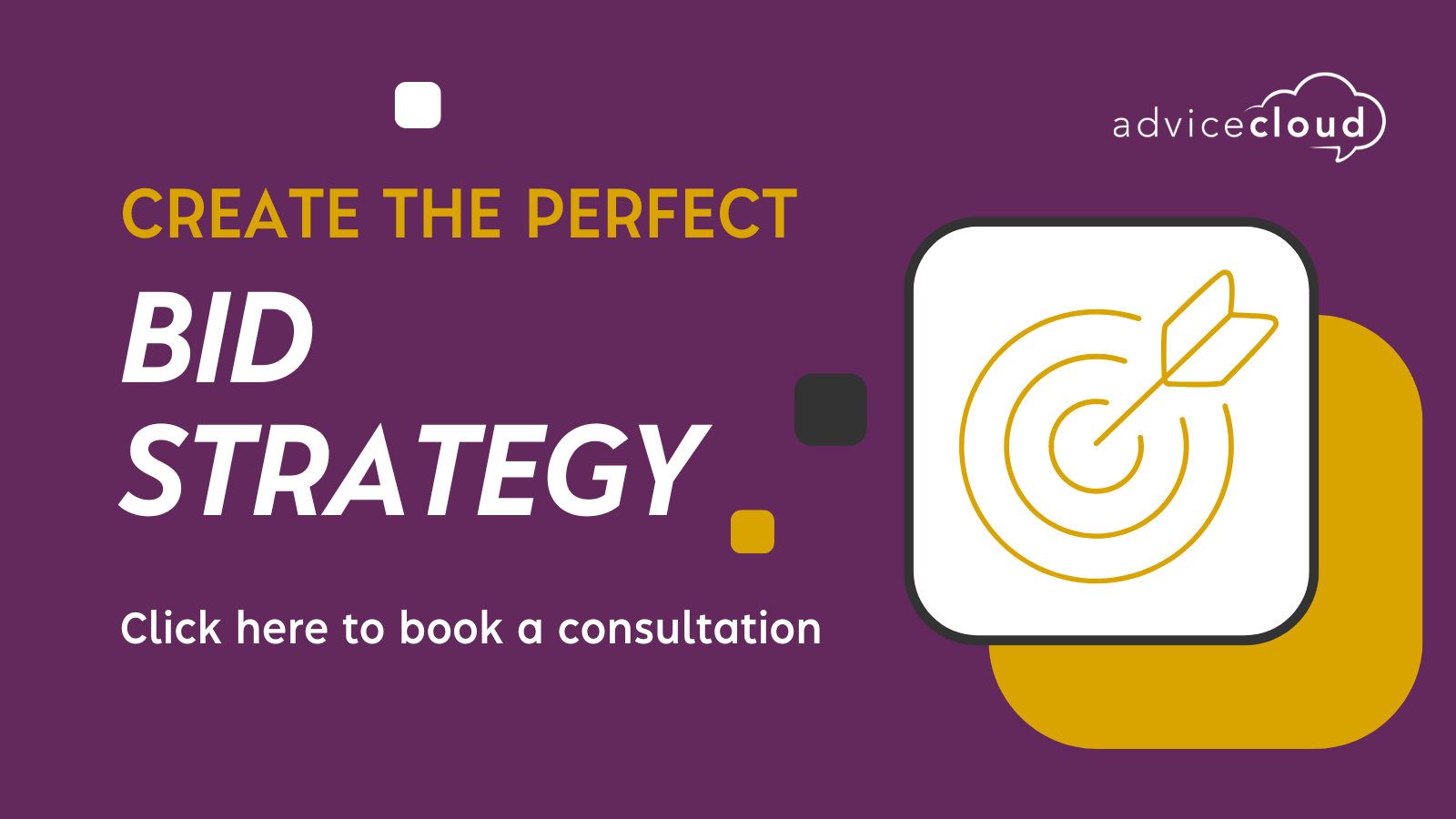Public sector procurement is a fast-paced and highly competitive environment. It might be tempting to hit ‘submit’ on a major bid then race off to work on the next one. But contracts are often won by the slimmest of margins; the difference between success and failure can hinge on the smallest details. We want to talk about why hitting the pause button for a moment to reflect on your work – conducting a bid retrospective – is a critical practice you shouldn’t overlook. As with any project, reflecting on the work you’ve carried out will only strengthen your future bids.
What is a bid retrospective?
A bid retrospective is a structured debrief that takes place after completing a major bid or proposal effort. Planning time and space for a retrospective allows you to analyse what went well, what could be improved, and how to enhance future bids.
Why do it? What are the benefits?
While it might be tempting to skip the retrospective in favour of meeting the next deadline, pausing to reflect offers invaluable benefits:
Identify Strengths and Weaknesses
Retrospectives allow you to take a step back and objectively assess all elements of your recent bid approach. What parts of your process were smooth sailing, and which bits felt like trudging through mud? This shines a light on strengths to be reinforced as well as areas requiring improvement.
Capture Lessons Learned
No two bids are identical, so there’s always something new to learn from every proposal you create. Retrospectives ensure these lessons are captured and documented rather than getting lost, and the knowledge gained here can be applied to future bids.
Provide Feedback and Promote Accountability
If you’re a larger team and multiple colleagues worked on the bid with you, retrospectives are the perfect moment for everyone to share a bit of praise and some constructive nudges. It can allow team members to understand what they did well, what didn’t go so well, and how they can enhance their contributions going forward. Understanding which commitments were met or missed, and analysing the root causes, promotes personal responsibility and ownership over each team member’s role in future bids.
Optimisation
The lessons you learn in a retrospective feed into updates of bidding processes, templates, tools and enablers. You may find more efficient ways of managing time and resources, reducing the effort needed for future bids. It’s like giving your process a shiny upgrade, keeping your proposal capabilities fresh and optimised rather than stagnating.
Cultural Impact
A culture of transparency and continuous improvement is big for us, so we always suggest the same to our clients. Retrospectives can help in fostering this kind of culture and promoting learning within your team or organisation. Remember though, this isn’t a blame game. Transparency and honesty is about helpful discussions, and moving forward as a team.
The Anatomy of an Effective Bid Retrospective
Your retrospective should cover all areas of the bid process:
- Bid planning and kick-off (timelines, roles, resources allocated, etc.)
- Content development process (storyboarding, writing, reviews, approval workflows)
- Editing, formatting, and document production
- Compiled feedback from procurement/client (strengths, areas to improve) – always ask for feedback from the buyer after a failed bid!
- Team dynamics, collaboration, and knowledge sharing
- Use of tools, templates, and other enablers
- Overall pursuit strategies (pricing, commercial position, etc.)
To maximise the benefits, a retrospective shouldn’t just be a quick meeting. Here’s an idea of how to structure the session:
- Preparation: Start with gathering data and feedback from the bid process and outcome. Ensure you cover all areas as outlined above. This includes looking at the feedback provided by the buyer too.
- Structure: Use frameworks, such as a SWOT analysis, for a structured discussion. Assigning a neutral facilitator can help manage the conversation effectively.
- Actionable Outcomes: Ensure the session concludes with clear, actionable insights and assign responsibilities for implementing improvements. Make sure everyone knows where the next attempt can be better.
How to make this a consistent practice
The proposals and tendering process is cyclical, with each new pursuit providing opportunities to implement the lessons captured in previous retrospectives. While it’s tempting to immediately shift focus, failing to retrospect burns a key source of continuous learning and improvement. Building this habit enables your organisation to build upon current knowledge and boost win rates over time.
For bid retrospectives to become an embedded habit, there are a few things to put in place.
- Assign clear ownership
- Determine consistent triggers like the completion of any bid, completion of a bid over £XXX, or quarterly reviews
- Provide a streamlined template to ensure the same elements are always tracked
- Include it in your roadmap when you initially start planning a bid! When mapping milestones or goals along the way, include time for a retrospective at the end. It’s a practice that deserves more than a last-minute thought!
So, before you immediately jump to working on the next opportunity, remember that pausing for a bid retrospective is a strategic investment in your organisation’s future success. By systematically reflecting on past efforts, you are not just learning from experience—you are actively shaping a more successful future in the competitive landscape of public sector procurement.
We know, however, that time and resources are tight – especially for smaller players in this market. We primarily work with UK Tech SMEs to offer guidance and a helping hand through public procurement processes. By partnering with us, you can boost your public sector efforts and ensure you have the correct strategies in place. Book a free chat with one of our experts now and we’ll assess your current position and what we can do to help! Just click the link below.




